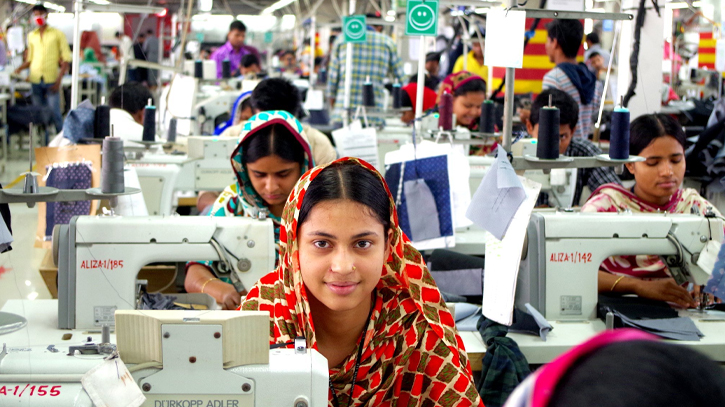
Photo: Collected
Due to political uncertainty, Bangladesh's garment sector may experience a fall in work orders from international markets as buyers are not comfortable placing orders in Bangladesh. As a result, work orders are likely to be diverted to Vietnam and Sri Lanka.
Bangladesh had become a dependable source of garments for international buyers during the last decade, though the sector faced a year-long Covid-19 lockdown, economic slowdown due to the Russia-Ukraine war, and lastly, a month-long student movement that changed the government.
However, international buyers fear the political uncertainty as Bangladesh is unlikely to achieve a stable economic situation within at least six months, heading into the peak Christmas season. The EU and America are the biggest buyers of Bangladeshi garments.
Muhammad Hatem, Executive President of Bangladesh Knitwear Manufacturers and Exporters Association (BKMEA), told The Daily Messenger, “As the world economy is still suffering from economic hassles, work orders have dropped by 30 percent, and exports are declining drastically. This political uncertainty will create more crises in obtaining work orders.”
He also said, “Bangladesh has huge establishments and has adopted high technology, so if the political situation does not ease, the investment will be at risk. And repayment of loans will be very difficult for the entrepreneurs.”
Fazle Shamim Ehsan, Vice President of BKMEA, told The Daily Messenger, “Naturally, political unrest tarnishes the image of the country. And we don't know when the situation will return to normal. So, we cannot assure the buyers.”
Regarding the loss of work orders, he said, ‘Of course, if we cannot entertain the orders, the buyers will search for other options.”
In addition, due to increases in electricity and fuel prices and minimum wages, the production cost of the ready-made garment industry has increased manifold. But the price of clothing products has not increased; in fact, the price per unit has decreased. On the other hand, apparel importers are ordering fewer products than before. As a result, the desired growth in export earnings has not been achieved.
Summer season clothes are mostly made in factories in Bangladesh. Most brands and buyers complete the purchase order process for this season between July and September. After the production of these purchased products, exports start from November. Bangladesh is losing work orders.
Jannatul Ferdush Ara, an export expert, said, “The buyers are not agreeing to extend the time. They want their products as per schedule. So, political stability is important to keep the buyers in the country.”
Fatullah Apparels Limited has increased overtime to five hours daily. The factory is even open on Fridays. All exporters are trying to send products as soon as possible. They are also using airways, spending high freight charges so that buyers can be comfortable placing new work orders.
Data shows that during the eleven months of the 2024 fiscal year, exports stood at $51.54 billion, which is 2.01 percent higher than last year, though it missed the target by 8.47 percent. In the corresponding year, exports aggregated $56.31 billion.
Experts think such economic and political situations will not be healthy for doing business in the country. They said the government failed to control money laundering by controlling imports. If the interim government can control the situation, businesses may feel more comfortable.
Unexpected falls in remittances make businesses and the government more worried because the government has to pay huge outstanding bills in dollars, and businesses have to import raw materials and machinery with dollars.
Businessmen and economists think that it is not possible to achieve this target. They opine that it will be difficult to achieve the export earnings target for the current financial year due to political unrest, high inflation, economic crises in export destinations, and rising production costs.
Messenger/Disha








